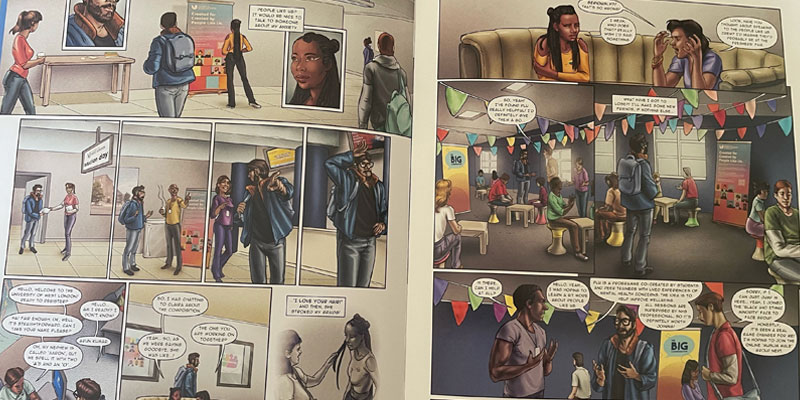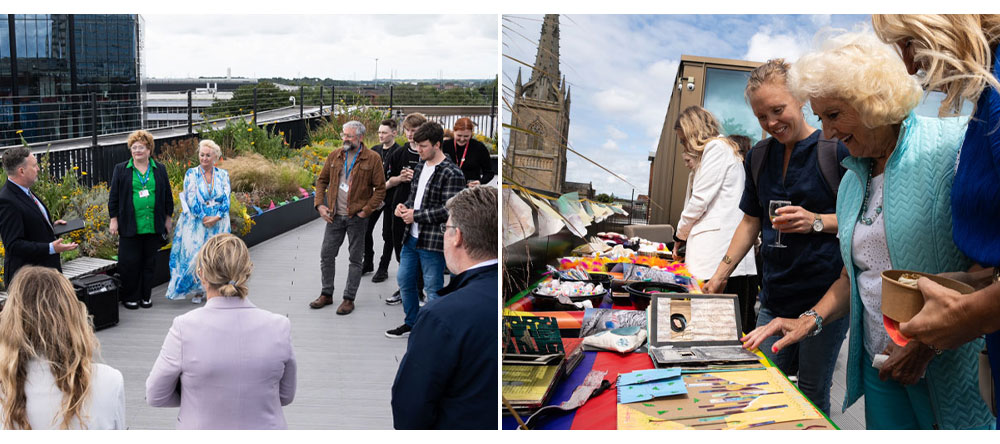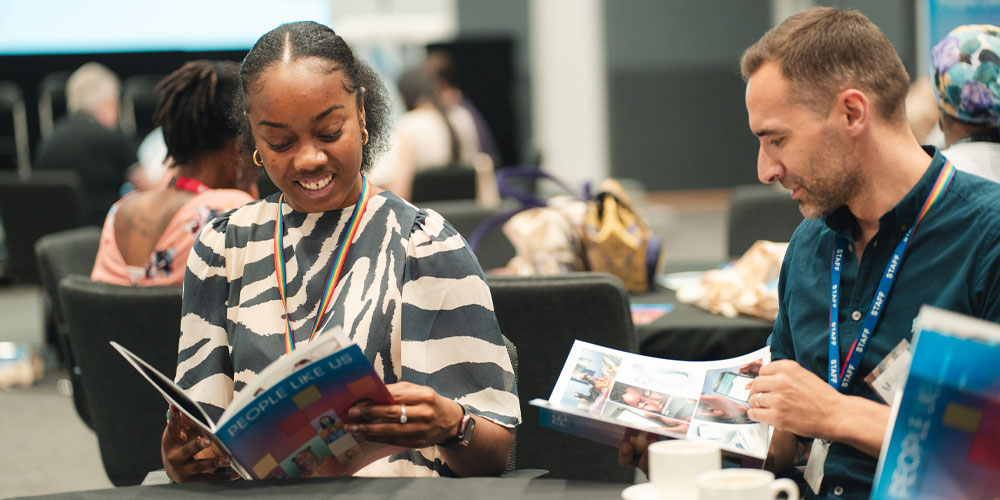The OfS’s Head of Equality, Diversity and Inclusion, Amy Norton, reflects on our mental health funding competition and explains how the OfS is working with providers and other organisations to support the mental health of students.

In June, I was delighted to attend an event held by the University of West London to mark the end of the ‘People Like Us’ project that it's been leading as part of the OfS Mental Health Funding Competition (MHFC). The project addresses racial and cultural barriers to seeking wellbeing support for students from Black, Asian and minority ethnic groups. It was fantastic to meet project leads, senior management sponsors and, importantly, the students who have been involved.
The OfS’s funding programme has focused on student groups with characteristics identified as increasing their risk of poor mental health. It also aims to drive improvements in access to support for those who may experience additional barriers.
Hearing directly from the students that these innovative approaches are designed to support, and those that have been involved in co-creation, was incredibly impactful.
As the projects draw to a close and share their outputs and achievements with the higher education sector, it’s a welcome opportunity for us to join some of the project celebration events and conferences. My colleague Grace recently attended an event held by the University of Central Lancashire, whose creative mental health framework has been delivered by students for students aiming to reduce barriers and stigma around mental health for LGBTQ+ students.

Sharing learning
Throughout the MHFC programme, the OfS has facilitated network events to bring projects together. We’ve found these to be interesting and engaging, and projects have reported that they have enabled useful discussions on approaches to addressing challenges, as well as opportunities for collaboration on common areas of work.
To share the learning from the programme more widely, we facilitated two webinars in June that showcased seven of the projects, as well as hearing from the independent evaluators. The recordings are now available on our website – I’d encourage you to watch them if you have an interest in developing targeted approaches to student mental health.
As individual projects finish, we’ll share their resources and findings.
Project outputs that are already available include:
- The University of Chester has launched an Autism Toolkit that includes information and guidance for students and parents
- De Montfort University has published both a staff and student padlet, a digital information booklet designed to help its university community identify support
- The University of Liverpool launched a video tour of its virtual reality intervention, which is designed for placement students to improve their wellbeing
- City of Liverpool College has shared multiple case studies on its collaborative project with other providers as part of the funding competition. The project focused on delivering social prescribing interventions for students across 10 further education colleges
- London South Bank University has launched a library of resources, targeted at helping Black students, in partnership with NHS Good Thinking
- The Open University has published an online resource hub entitled ‘Positive digital practices’ to help improve the wellbeing of part-time, commuter and distance learners
- The University of West London has launched a toolkit for its ‘People Like Us’ project, documenting how it developed and delivered its mental health intervention. The toolkit is designed to help other providers create and implement the intervention with guidance on evaluation.

We’ve also published other updates on the OfS website, including to our general mental health pages, with further details on what we’re doing in relation to suicide prevention.
Finally, we have shared a video presentation from the University of Birmingham, which participated in our previous Mental Health Challenge Competition. The video details the university's experiences one year on, including how it is embedding project outputs within business-as-usual activities.
Facilitating collaboration
Another significant programme the OfS is currently delivering focuses on joint working between higher education providers and NHS partners. Through facilitated action learning sets, we have commissioned Nous Group to bring together individuals from both the higher education and health sectors to reflect on current challenges and barriers and collaborate to identify approaches to address these issues.
In June, the sets finished their first phase of action learning and Nous Group has published an interim report of their findings. Common challenges identified by both sectors included:
- a lack of clear roles and responsibilities
- a lack of clear information sharing agreements
- low availability of resources and supports in health systems
- increasingly diverse – including international and mature – students.
The second phase of the programme will see participants continuing to develop their collaboration and explore solutions to the challenges they have identified.
What’s next?
Student mental health continues to be a priority area for the OfS and is one of the 11 goals in our 2022 to 2025 strategy.
As well as working with our funding competition projects to complete their final monitoring, evaluation and dissemination, the coming months will see the OfS:
- actively engage as a member of the new Higher Education Mental Health Implementation Taskforce, led by higher education Student Support Champion, Professor Edward Peck
- launch a digital hub of resources to make research and practice related to student mental health accessible to universities and colleges. This has been developed by a consortium led by TASO, which includes What Works Wellbeing, SMaRteN, King's College London, Student Minds and AMOSSHE
- publish an Insight brief on student mental health in the autumn
- share findings and outputs from our learning and evaluation programme focused on joint working between higher education and health partners
- work with the independent evaluators for the MHFC, Wavehill, to publish the programme-level evaluation in early 2024
- continue to fund Student Space to support students in navigating the uncertainties of university life with up-to-date resources and signposting.
With a wealth of evidence and guidance available, and new research and innovation emerging at pace, we encourage higher education providers and others to use the resources available, building on existing practice and collaborating effectively to give students the support they need to thrive.
Funding improvement and innovation
The OfS distributes more than £1 billion of funding to more than 340 providers registered with us each year. This is one of the regulatory tools available to us and allows us to deliver our priorities and ensure the availability of high quality, cost-effective higher education across England.
Further details of 2023-24 funding decisions, including on the premium to support student transitions and mental health are on our website. Individual provider amounts are at Annex A (click the ‘+’ sign above column W and view column V).

Comments
Report this comment
Are you sure you wish to report this comment?